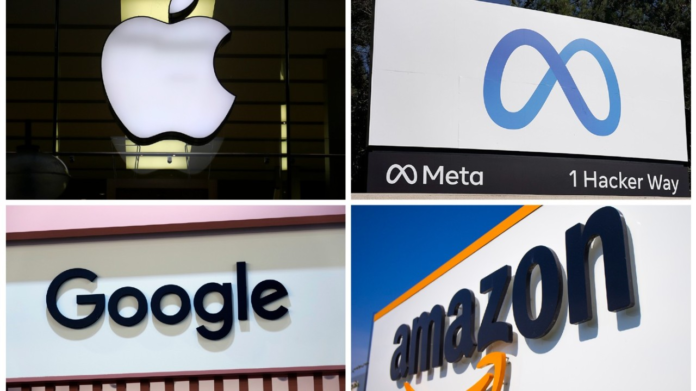Today’s business headlines herald a harsh reality for Big Tech: tumult at Twitter; meltdown at Meta; atrophy at Alphabet; adjustments at Amazon. Layoffs, sliding stock and shrinking valuations are hallmarks of the moment.
Big Tech malaise is unfolding before our very eyes.
While the tech downturn was not unexpected, it is not altogether unwelcome.
Some might even consider it relief.
No one — not even investors — seems to be shedding tears for the tech sector.
After a decades-long bull run, now comes the decline, the disruption, the denouement. After all, irrational exuberance can only last so long.
Investment analysts are issuing cautionary guidance. Large cap S&P stocks are taking solace that they are not alone during the downturn. Misery loves company.
Congress, the FTC and DOJ have had Big Tech titans in their crosshairs for years but have been unable to pull the trigger.
The tide may be turning.
Comeuppance in Washington may be slow, but it does occur. A new Congress is sure to focus on the well-documented missteps of Amazon, Google, Meta and Twitter, for starters. That would be a redux with a dash of House Republican fervor.
Fatigued from its failure to protect our data and respect our privacy, we may be better for the Big Tech tumble. Ecclesiastes reminds us there is a time and season for everything. For Tech, the chastening has been a long time coming.
For many, Big Tech has become insufferable, leveraging its largesse to thwart legislation, regulation and reform. Believing the federal government to be feckless, Silicon Valley has been impervious to Washington conventions. Its posture of enlightened elitism, smug self-satisfaction, and unearned exceptionalism pervaded Washington for years. Again, that may be coming to an end.
The recent decline in Big Tech values and the diminishment of its leaders offer a good time to pause.
This may be a seminal moment for the country as social, economic and security concerns are being examined under new lenses.
Policymakers can be deliberate rather than diffident when addressing the full range of tech policy issues. Their erstwhile deference to industry dictates can now be reviewed and reversed.
Taken together, these developments are all good, not only for Americans but also for the world. They allow the industry to retool for today’s economic realities — and to recalibrate their C-suite leadership for tomorrow’s workforce.
Of course, losing money is never a good thing for investors, be they retail or institutional. Many 401k funds shriveled before our eyes. But stock price is but one indicator of the problems besetting Tech. While the broader societal issues are more ephemeral, they cannot be ignored. The expression of political speech and the protection of children are notable problems — as are privacy, cybersecurity and industry discrimination.
Witness Elon Musk’s content moderation council — a noble notion but hard to implement equitably and efficiently. And Meta’s morale problems are no longer an on-campus secret among the cognoscenti. All of which have to be handled, and soon.
A clear-eyed view will allow us to take Big Tech for what it is — warts and all. Although it transformed the modern global economy, it is no longer the be-all, end-all for outsized growth. Its social impact — both good and bad — cannot be questioned, but its unassailed economic dominance should be.
With the resurgence of energy and transportation stocks, some question the viability of Big Tech companies as mid-term engines of growth.
While the rumors of Tech’s demise may be premature, it is not too early to chart a more responsible course for the future, including true cooperation with European and American regulators on the issues that matter most.
We may all be better for the Big Tech tumble — if for no other reason than it compels us to challenge what has become convention.
Adonis Hoffman is CEO of The Advisory Counsel, Inc. He is a former chief of staff and senior legal advisor at the FCC and served in legal and policy positions in the U.S. House of Representatives. He has also served as an adjunct professor at Georgetown University.



